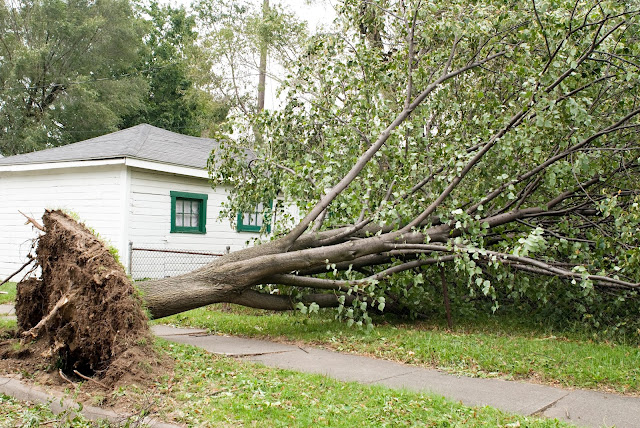Morning Thoughts: Strong Around the Roots
 |
| Not the tree in question, just a stock image. |
Last week, as my family has studied the organization of the Latter-day Saint pioneers in preparation for their trek west, I've had the opportunity to ponder the topic of self-reliance. For some time, I've believed that we have emphasized it too much, or perhaps in the wrong way, to the detriment of our communities. This morning I recalled an incident that brings into focus the reason why.
Not too far into the pandemic shutdowns of 2020, a wind storm swept through my area. We all lost power, most yards were a mess, and a number trees fell down. Among these was a massive one that belonged to a neighbor down my street. It was a powerfully built tree, thick around the trunk, sturdy, and the focal point of my neighbor's yard. As I spoke with him in the aftermath of the storm, he looked from his large tree lying across the street to the many other smaller and younger trees that had survived the storm and said with frustration, "I thought this was a strong tree!"
The tree did look strong and healthy. It had been beautiful and seemed to be thriving. But in a crisis, the earth around the tree hadn't supported it. Indeed, the network of roots anchoring the tree to the earth had also failed. One of the most striking things when looking at the scene was how small a mass of roots had been unearthed, compared with the size of the tree. The damage to the ground seemed to be limited to a small landscaped circle around the tree. The surrounding grass was largely undisturbed. Whether this is because the roots had broken or because they were simply shorter than expected, I don't know.
There are a lot of ways I could take this story, metaphorically speaking. But the one I've been thinking about today involved self vs. community reliance. As the aforementioned pioneers learned, one cannot easily weather difficult storms alone. Major undertakings are made manageable by the support of a community. We may individually be beautiful, thriving trees that seem strong and whole, but if we lack a support system, if we are not firmly anchored to a community, we may not well endure the next storm. Moreover, surviving individually is not enough if we are content to watch our communities perish around us.
We have an unfortunate cultural thread in this country and, to an upsetting extent, in the Church of Jesus Christ of Latter-day Saints, that pretends that not only can we be entirely self-sufficient in the face of challenging events, but that it is the duty of responsible members to prepare to be so. Perhaps this stems from the teaching that we will ultimately each answer individually for our own salvation, that it is better to allow each person agency and personal responsibility. We are encouraged to be "anxious that every man should have an equal chance throughout all the land," and that everyone should bear their own part (Mosiah 29:38).
But what is that part? Is it not to keep the covenants we make? To bear one another's burdens that they may be light? To consecrate all that we have and are to establishing the community of Zion? To exalt the poor in that the rich are made low? To not suffer that the beggar should put up his petition to us in vain? In short, is it not to love our neighbor as ourselves?
The pioneers needed companies of hundreds, groups of fifties and tens, each member of which pooled their resources and supported each other. They each had different resources according to their situations in life, and each was expected to give all they had. Then, each company was assigned a certain number of those without resources: the widows, the poor, and the fatherless, to include as equal members of their company (this is all in Doctrine and Covenants 136). Put differently, in their moment of crisis, the saints were to reach outward, sharing their resources and strengths, not retreat inward, hoarding those resources to ensure individual survival.
What I don't see in that section or anywhere else in scripture is the point at which the Lord says to stop caring for each other. I don't see where we're supposed to become islands of self-reliance. Gather resources, sure. Expand property, gain skills and knowledge, of course. But all that storing of the necessities of life, all that emergency "prepping," as we call it these days: that seems to be intended to be done either on a community basis, or else with the intention of making it communally available in said emergency.
The Lord lays up fruit against the season unto his own self, but we are either the laborers in the vineyard, or else the fruit. In either case, we're in this thing together, and we should probably act more like it. So if we're going to preach independence, perhaps we should make it community independence, instead of this self-reliance stuff that encourages us to hoard things for ourselves, and leave our neighbors to the wolves.
At least, that's what I've been thinking about this morning.

Comments